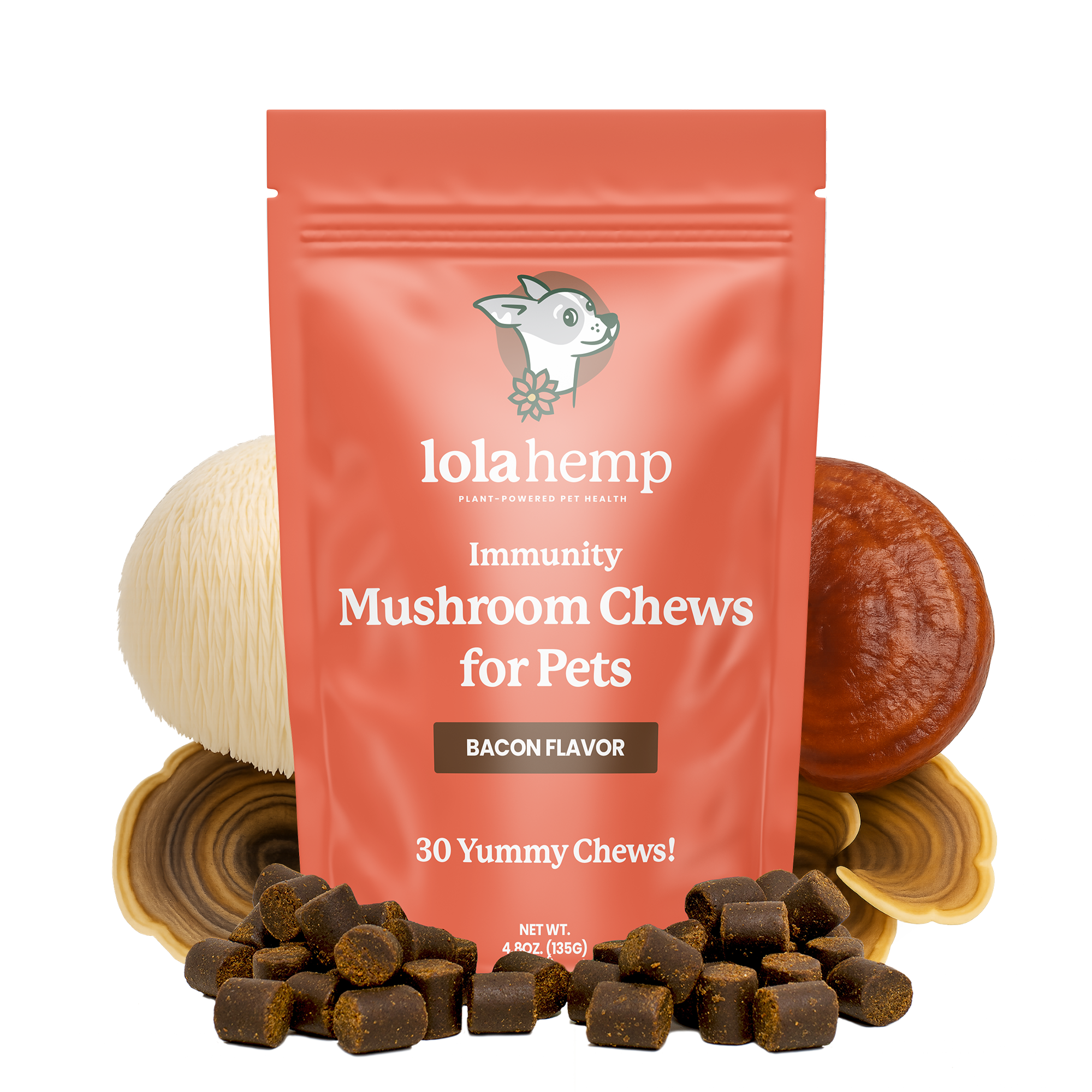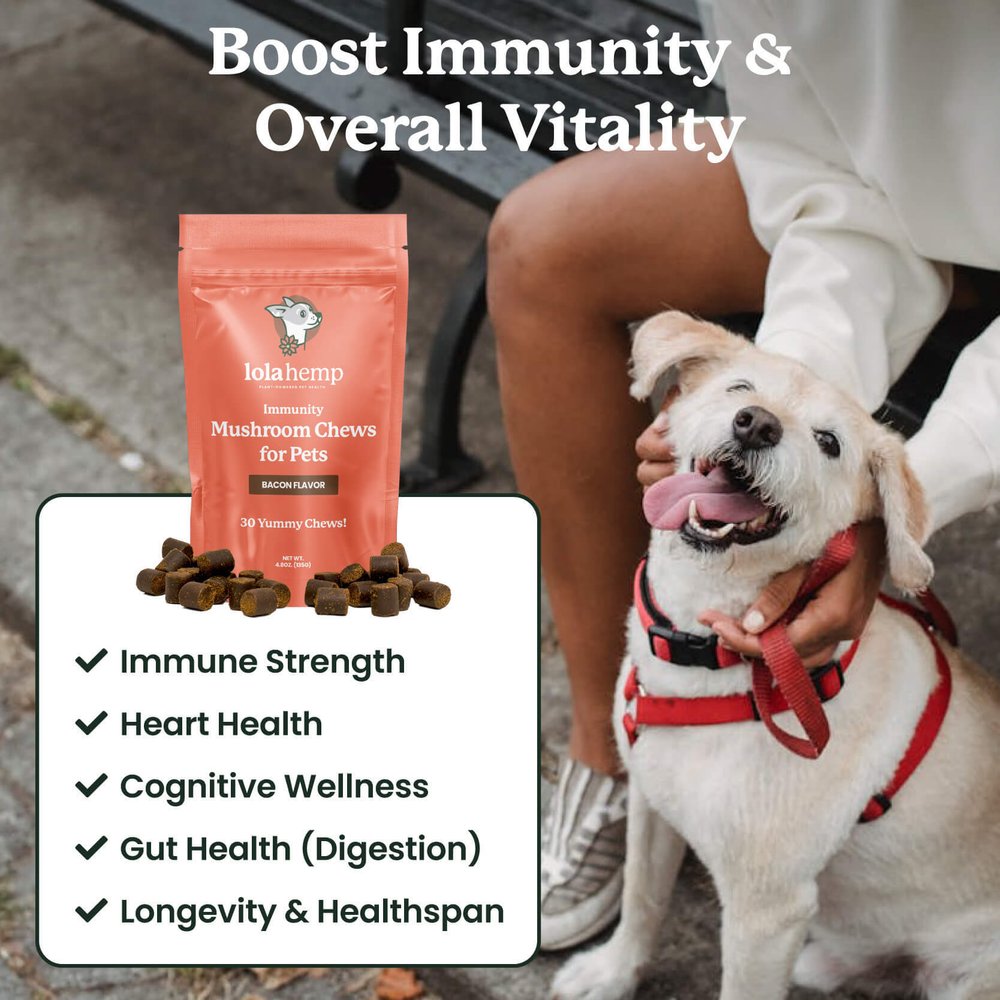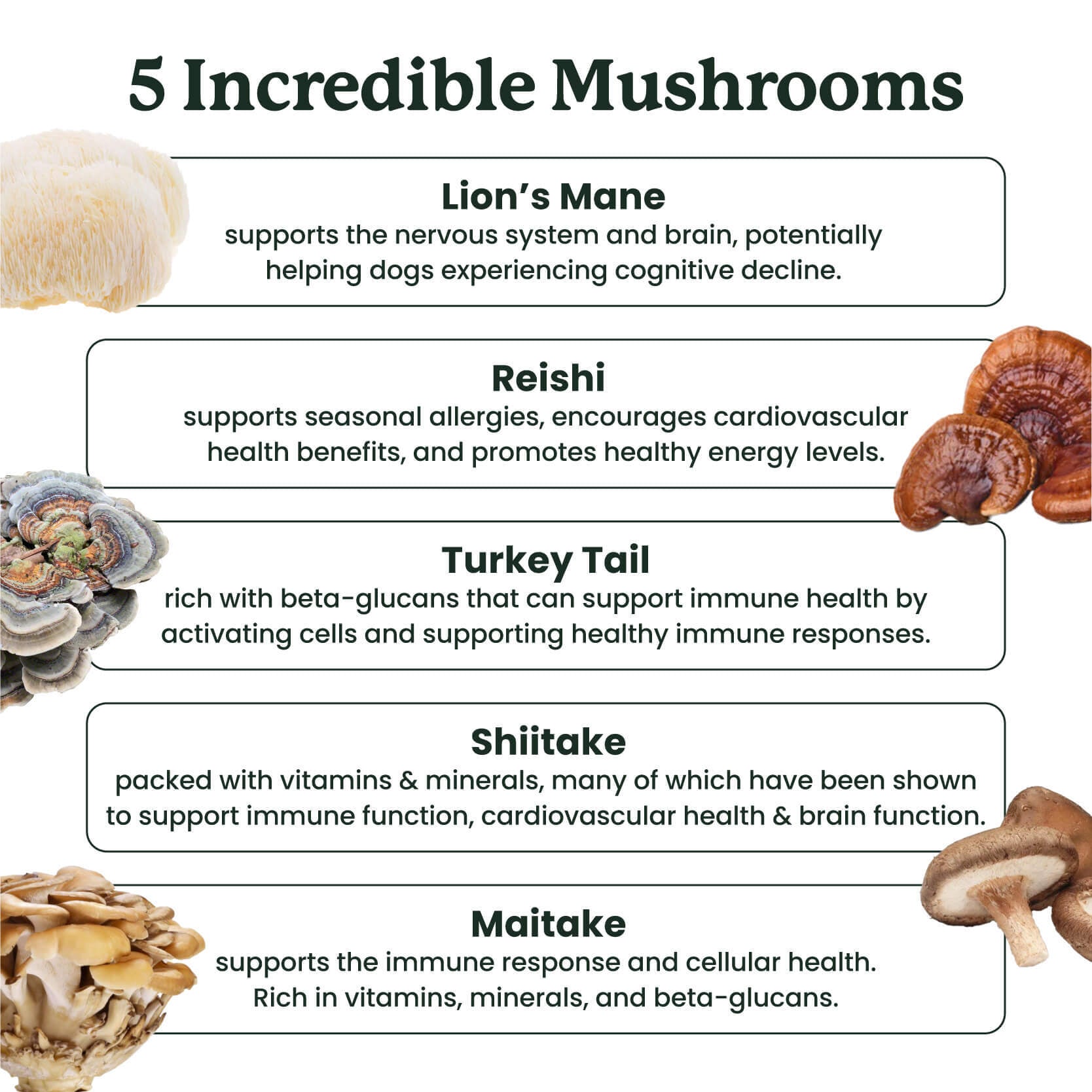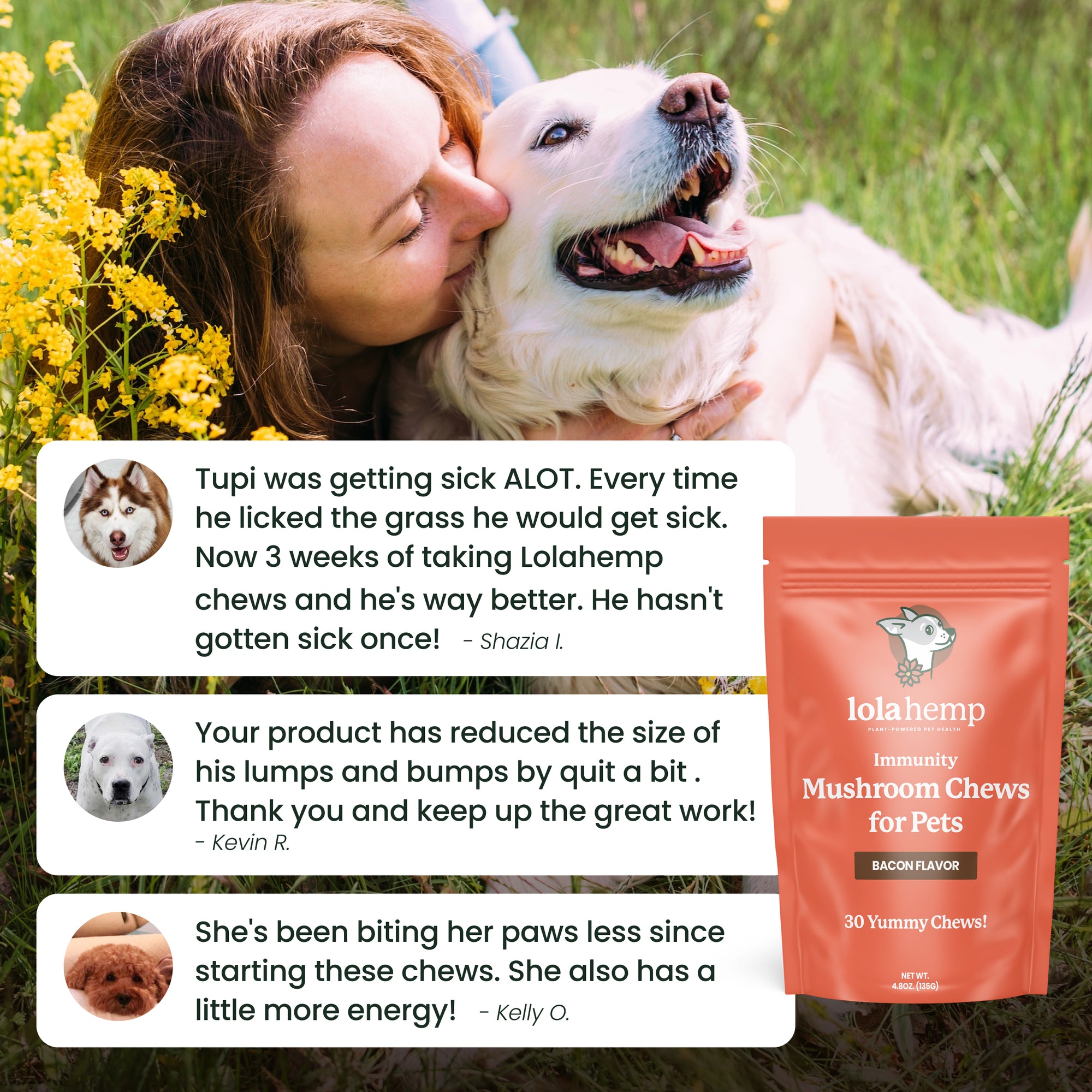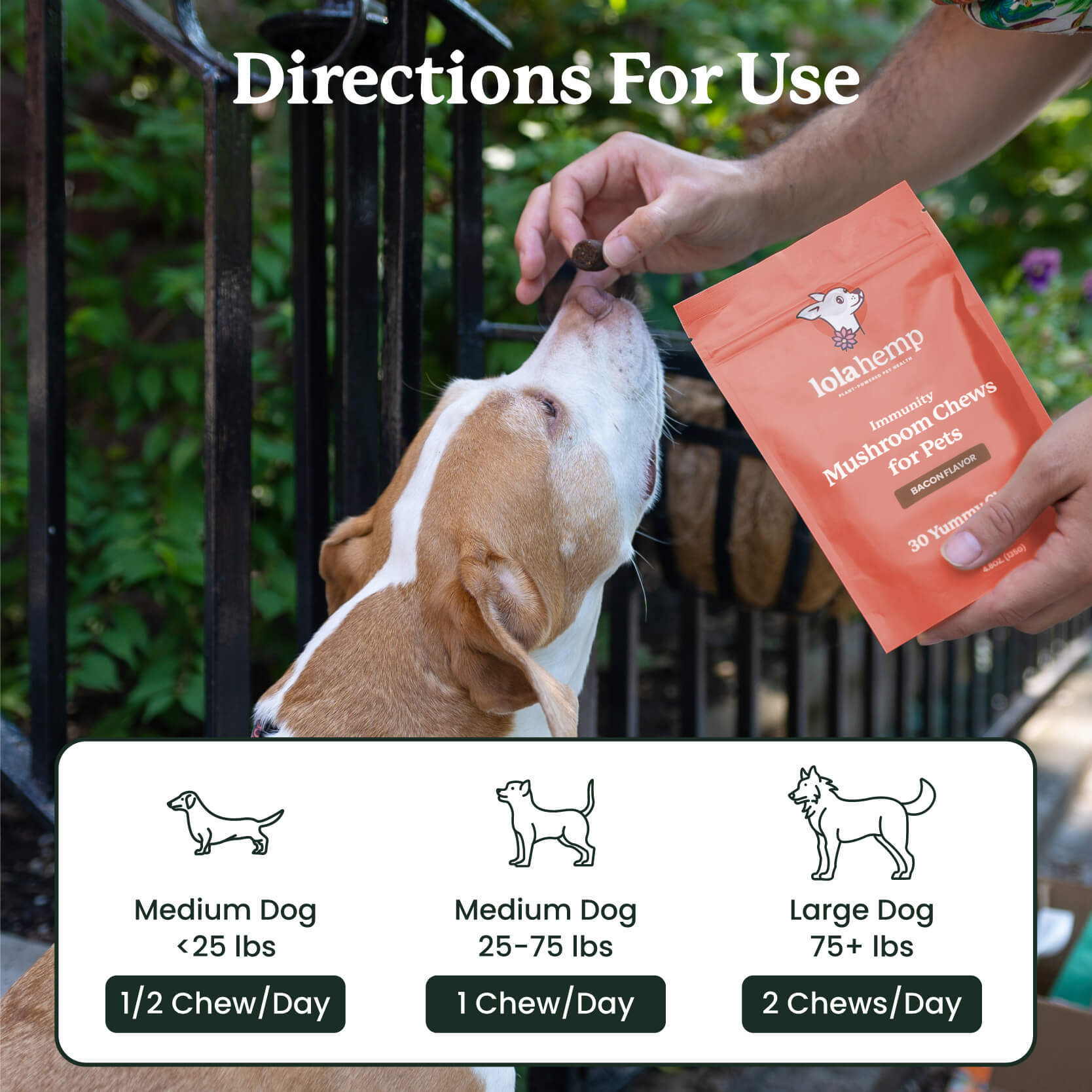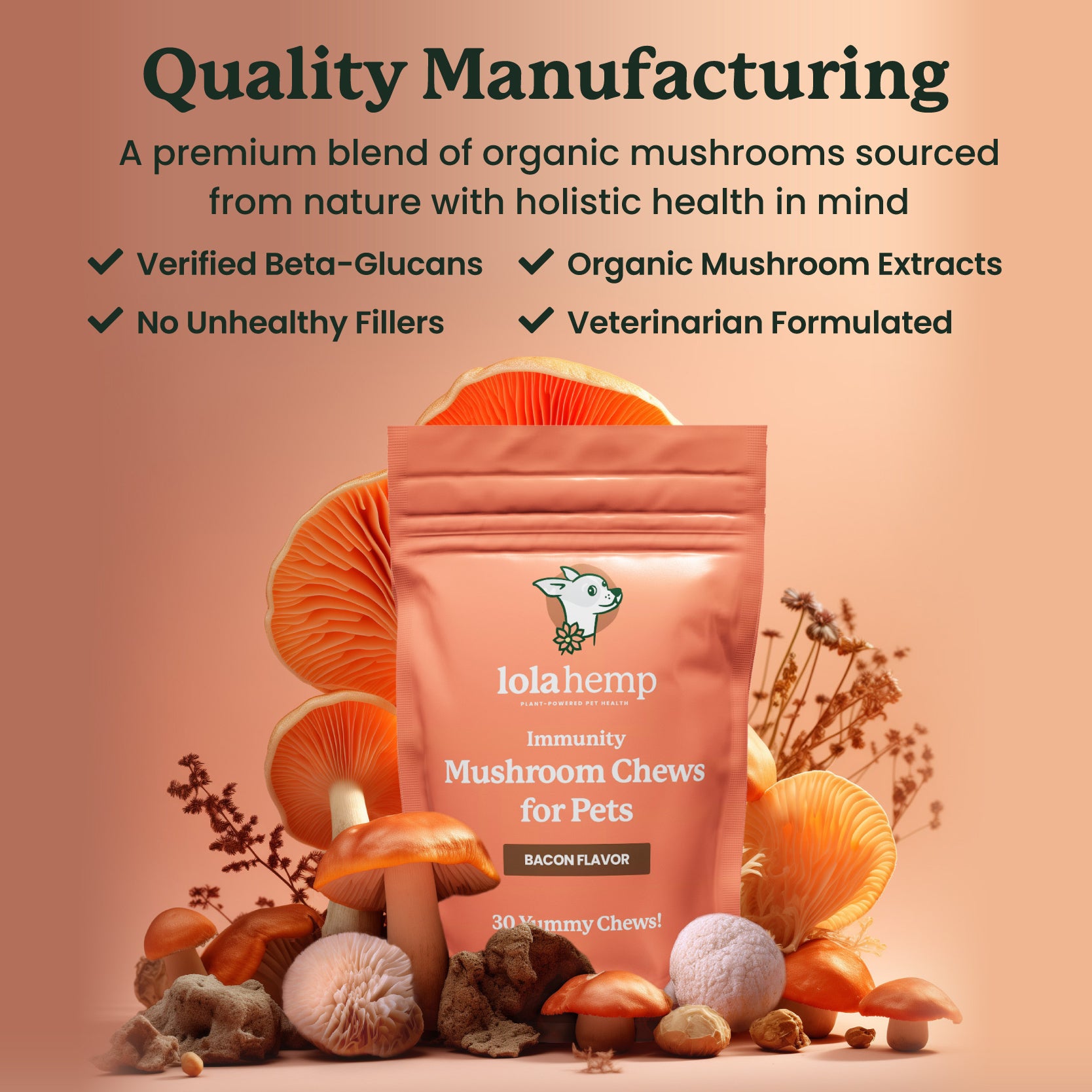There’s a trend toward feeding human foods to dogs. We see all manner of wet foods, organic mixtures, perishable bags of dog food, and other products made with foods that we humans eat, flavored here and there to be more appealing to our furry friends.
Dogs can’t eat all of the vegetables we do, however.
That’s why it’s important to go with options that have been studied and approved. The following is a list of the best vegetables dogs can eat as well as a few ideas on incorporating them into your feeding schedule.
So, what veggies can dogs eat?
1. Broccoli is Good for Dogs in Moderation
Key Nutrients for Dogs in Broccoli: Vitamin C, Calcium, Vitamin K, Magnesium, Fiber, Protein

Broccoli is one of the most nutrient-dense vegetables on the planet. It’s known to help prevent against disease in humans and it's stuffed with vitamin C, calcium, vitamin K, magnesium, fiber, and protein.
Throw a few small amounts of broccoli into your dog's new veggie mix, but don’t make it the key ingredient. Broccoli includes compounds called isothiocyanates that can cause stomach pain in dogs.
Monitor their behavior and digestion process for the first week or so. If your dog digests broccoli well and you continue feeding it to them, it could provide some benefit.
Benefits of broccoli for dogs could include:
- Improved digestion
- Healthy brain function
- Increased bone density
2. Carrots are a Great Snack for Dogs
Key Nutrients for Dogs in Carrots: Beta Carotene, Fiber, Protein, Antioxidants, Vitamins B6, A, B, K1, Potassium

Carrots are an excellent option for your pups for numerous reasons. For one, they’re a crunchy snack dogs find interesting and enjoyable to eat.
Another great thing about carrots is that you can feed them to dogs without cooking them. They can even be frozen when they reach your dog’s bowl, which could make them more enjoyable to chew.
Make sure that carrots don’t make up more than 5 or 10 percent of the calories your dog eats on any given day.
3. Sweet Potatoes are Excellent Treats
Key Nutrients in Sweet Potatoes for dogs: Vitamins A, C, B6, B5, E, Manganese, Potassium, Beta Carotene

Sweet potatoes don’t have anything dangerous to dogs, so they can be a key component of a healthy canine diet.
Note: White potatoes aren’t necessarily dangerous, but they can cause blood sugar spikes and aren’t as nutritious.
The best way to give your dog sweet potatoes is to finely chop and boil them to soften them for digestion.
4. Zucchini is a Crunchy, Healthy Snack
Key Nutrients for Dogs in Zucchini: Vitamins A, C, K, B6, Folate, Copper, Phosphorous, Potassium

Zucchini is soft, chewable, and digestible. It’s a great source of B vitamins, fiber, potassium, and antioxidants.
Tips for Feeding Zucchini to Your Dog
Chop zucchini before feeding. Boiling or mashing can help if your dog is adjusting to new vegetables.
5. Plain Green Beans are Good for Dogs
Key Nutrients: Vitamins C, A, K, B6, E, Niacin, Calcium, Magnesium, Phosphorous

By "plain", we mean unseasoned. Avoid canned beans, as they may contain salt or additives.
Green beans are high in fiber, making dogs feel full faster—helpful for weight control.
Tips for Feeding Green Beans to Your Dog
Chop, boil, or steam green beans. Wash thoroughly before serving.
Conclusion
All of the vegetables above are healthy in moderation for most dogs. Still, each dog reacts differently.
If your dog has health conditions or a sensitive digestive system, consult your veterinarian before changing their diet.
If you notice negative changes, discontinue the food and visit your vet.
Introduce Ingredients Slowly
Introduce vegetables one at a time and wait a few weeks before adding new ones. That way, you can identify any negative reactions.
Even "superfoods for dogs" can be problematic for some dogs.
Vegetables Dogs Can Eat – Frequently Asked Questions
What vegetables are safe for dogs?
Many vegetables are safe for dogs, including carrots, sweet potatoes, zucchini, and plain green beans. Broccoli is safe in moderation.
Can dogs eat raw vegetables?
Some raw vegetables like carrots and zucchini are fine, but others are better boiled or steamed for easier digestion.
Is broccoli safe for dogs?
Broccoli is safe in small amounts but contains isothiocyanates, which may cause stomach upset if overfed.
What vegetables should dogs avoid?
Dogs should avoid onions, garlic, leeks, and certain leafy greens like kale or spinach in large amounts.

